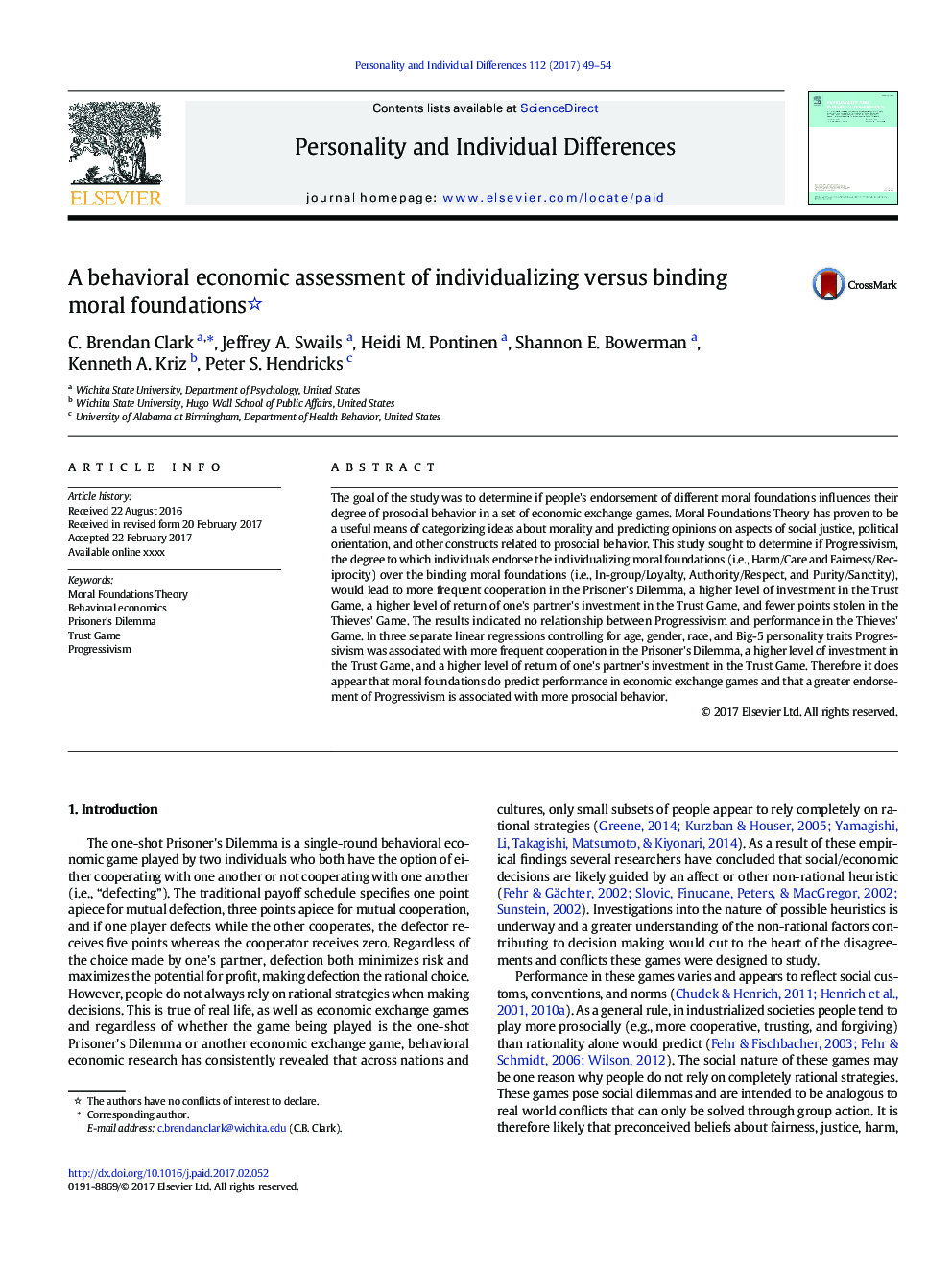| Article ID | Journal | Published Year | Pages | File Type |
|---|---|---|---|---|
| 5035722 | Personality and Individual Differences | 2017 | 6 Pages |
Abstract
The goal of the study was to determine if people's endorsement of different moral foundations influences their degree of prosocial behavior in a set of economic exchange games. Moral Foundations Theory has proven to be a useful means of categorizing ideas about morality and predicting opinions on aspects of social justice, political orientation, and other constructs related to prosocial behavior. This study sought to determine if Progressivism, the degree to which individuals endorse the individualizing moral foundations (i.e., Harm/Care and Fairness/Reciprocity) over the binding moral foundations (i.e., In-group/Loyalty, Authority/Respect, and Purity/Sanctity), would lead to more frequent cooperation in the Prisoner's Dilemma, a higher level of investment in the Trust Game, a higher level of return of one's partner's investment in the Trust Game, and fewer points stolen in the Thieves' Game. The results indicated no relationship between Progressivism and performance in the Thieves' Game. In three separate linear regressions controlling for age, gender, race, and Big-5 personality traits Progressivism was associated with more frequent cooperation in the Prisoner's Dilemma, a higher level of investment in the Trust Game, and a higher level of return of one's partner's investment in the Trust Game. Therefore it does appear that moral foundations do predict performance in economic exchange games and that a greater endorsement of Progressivism is associated with more prosocial behavior.
Related Topics
Life Sciences
Neuroscience
Behavioral Neuroscience
Authors
C. Brendan Clark, Jeffrey A. Swails, Heidi M. Pontinen, Shannon E. Bowerman, Kenneth A. Kriz, Peter S. Hendricks,
